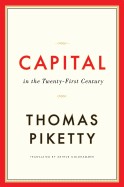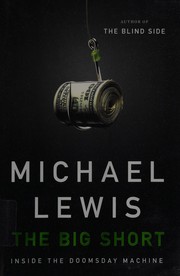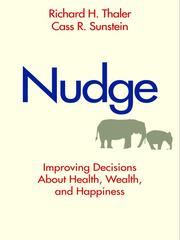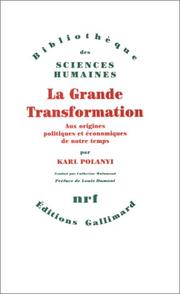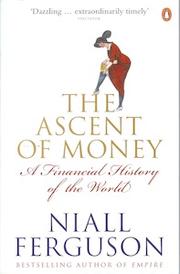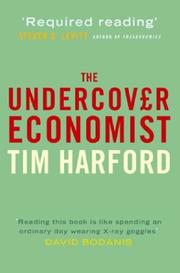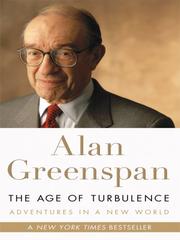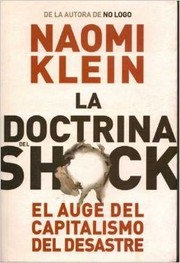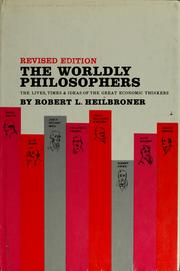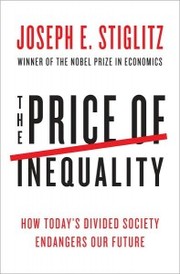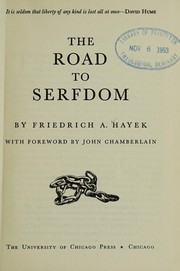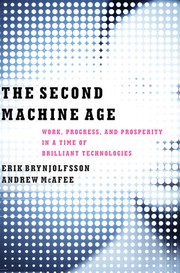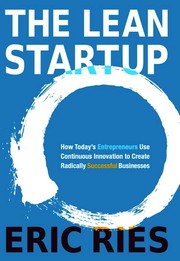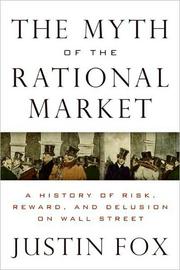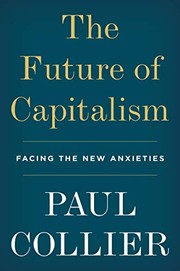Are you looking for a book on economy that will expand your understanding of economic systems and theories? Look no further! We’ve compiled a list of the 20 best economy books that will enlighten and educate you on the complexities of the global economy. Whether you’re a student, economist, or simply curious about the subject, these books will provide you with valuable insights and knowledge. From classics to modern bestsellers, this list has something for everyone interested in delving into the world of economics.
Contents
- 1 20 Best Books About Economy
- 2 Capital in the Twenty-First Century
- 3 Freakonomics
- 4 The Big Short
- 5 Nudge
- 6 Thinking, Fast and Slow
- 7 The Wealth of Nations
- 8 The Great Transformation
- 9 The Ascent of Money
- 10 The Undercover Economist
- 11 The Age of Turbulence
- 12 The Shock Doctrine
- 13 The Worldly Philosophers
- 14 The End of Alchemy
- 15 The Price of Inequality
- 16 The Road to Serfdom
- 17 The Second Machine Age
- 18 The Lean Startup
- 19 The Innovator’s Dilemma
- 20 The Myth of the Rational Market
- 21 The Future of Capitalism
- 22 Conclusion
- 23
- 24 The 20 Scotland Fiction Books: Best 2024 Update and Review
- 25 Best Books About Kindness And Friendship. 2024 Edition
- 26 20 Deserted Islands Best Books to Read – The 2024 Edition
20 Best Books About Economy
Capital in the Twenty-First Century
by Thomas Piketty
Capital in the Twenty-First Century by Thomas Piketty is a groundbreaking book on economy that delves into the dynamics of wealth and inequality. Piketty meticulously examines historical data to reveal the concentration of wealth in capitalist societies and the impact it has on economies. He argues that without intervention, inequality will continue to grow, leading to social and economic instability. The book challenges conventional economic theories and offers a fresh perspective on the distribution of wealth. With its thorough analysis and compelling arguments, Capital in the Twenty-First Century has sparked global discussions on wealth disparity and has become a seminal book about economy. Piketty’s work is essential reading for anyone interested in understanding the complexities of modern capitalism and its effects on society.
Freakonomics
by Steven D. Levitt and Stephen J. Dubner
Freakonomics is a captivating book on economy that delves into the unexpected ways in which economics impacts our daily lives. Co-authored by Steven D. Levitt and Stephen J. Dubner, this thought-provoking economy book takes readers on a fascinating journey through various real-life scenarios, using economic principles to uncover hidden patterns and motivations. The authors tackle a wide range of topics, from crime rates and parenting to sumo wrestling and the Ku Klux Klan, offering fresh insights and challenging conventional wisdom along the way. With its engaging storytelling and unconventional approach, Freakonomics is a must-read for anyone curious about the hidden workings of the economy and the world around us.
The Big Short
by Michael Lewis
The Big Short by Michael Lewis is a captivating book on the economy that delves into the 2008 financial crisis. Lewis takes readers on a thrilling journey through the world of high finance, following a group of investors who saw the impending collapse of the housing market and bet against it. Through vivid storytelling and in-depth research, Lewis explores the greed, hubris, and recklessness that led to the economic meltdown, while also shedding light on the few individuals who saw it coming and profited from the chaos. This book about the economy offers a fascinating look at the inner workings of Wall Street and the complex financial instruments that contributed to the crisis. With its compelling narrative and eye-opening insights, The Big Short is a must-read for anyone interested in understanding the intricacies of the economy.
Nudge
by Richard H. Thaler and Cass R. Sunstein
Nudge by Richard H. Thaler and Cass R. Sunstein is a groundbreaking book on the economy that explores how small changes in decision-making can have a big impact. The authors introduce the concept of ‘nudging’ – using subtle prompts and cues to influence choices without restricting freedom. Drawing on insights from behavioral economics, psychology, and neuroscience, they reveal how people often make decisions that are not in their best interest, and offer practical suggestions for designing policies and environments that encourage better choices. With engaging examples and thought-provoking insights, Nudge challenges conventional thinking about human behavior and provides a fresh perspective on how to improve decision-making in various aspects of life. This is a must-read for anyone interested in understanding the complexities of decision-making and how to create positive change in the realm of economics.
Thinking, Fast and Slow
by Daniel Kahneman
Thinking, Fast and Slow by Daniel Kahneman is a captivating exploration of the human mind and decision-making processes. In this insightful book, Kahneman, a Nobel Prize-winning psychologist, introduces the concept of two systems of thinking: the fast, intuitive, and emotional system, and the slow, deliberate, and logical system. Through engaging anecdotes and groundbreaking research, he delves into the various biases and errors that can affect our thinking and decision-making, shedding light on the complexities of the human mind. Whether you’re a psychology enthusiast or simply curious about the inner workings of the mind, this book offers a fascinating journey into the intricacies of human cognition. It’s a must-read for anyone interested in understanding human behavior and the intricacies of the mind.
The Wealth of Nations
by Adam Smith
The Wealth of Nations by Adam Smith is a groundbreaking book on economy that revolutionized the way we understand wealth and prosperity. Published in 1776, this influential piece of literature is considered the foundation of modern economics. Smith’s book about economy discusses the principles of free market capitalism and the division of labor, emphasizing the importance of self-interest and competition in driving economic growth. Through his insightful analysis, Smith explores the concept of ‘the invisible hand’ and its role in shaping the economy. The Wealth of Nations remains a timeless classic, offering valuable insights into the complexities of economic systems and the factors that contribute to a nation’s prosperity.
The Great Transformation
by Karl Polanyi
The Great Transformation by Karl Polanyi is a groundbreaking book on the study of economics. Published in 1944, it provides a critical analysis of the rise of capitalism and its impact on society. Polanyi argues that the commodification of land, labor, and money has led to widespread social and environmental destruction. The book explores the tension between market forces and social needs, highlighting the consequences of prioritizing economic interests over human welfare. Polanyi’s work remains relevant today, offering valuable insights into the complexities of modern economic systems. Whether you’re a student of economics or simply interested in understanding the dynamics of society, this book about economy is a must-read.
The Ascent of Money
by Niall Ferguson
The Ascent of Money by Niall Ferguson is a captivating book on economy that takes readers on a journey through the history of finance, from ancient times to the present day. Ferguson explores the evolution of money, banking, and the global economy, shedding light on the interconnectedness of financial systems and the impact they have on societies and individuals. Drawing on historical events and personal anecdotes, the author provides valuable insights into the forces shaping the world of finance. With engaging storytelling and thought-provoking analysis, this book about economy offers a comprehensive understanding of the role of money in shaping human civilization and the modern global economy.
The Undercover Economist
by Tim Harford
The Undercover Economist by Tim Harford is a fascinating book about the intricacies of the economy. Harford takes readers on a journey through the economic world, using real-life examples and engaging storytelling to explain complex economic concepts in a way that is both entertaining and informative. With a focus on the everyday choices we make and how they are influenced by the economy, this book provides insight into the hidden workings of markets, prices, and incentives. Whether you’re a seasoned economist or someone with little knowledge of the subject, The Undercover Economist offers a fresh perspective on the economy and will leave you with a deeper understanding of the forces that shape our world.
The Age of Turbulence
by Alan Greenspan
The Age of Turbulence by Alan Greenspan is a captivating book about the economy that provides an insider’s look at the financial world. Greenspan, the former chairman of the Federal Reserve, offers a unique perspective on the global economy, drawing from his experiences and insights gained during his time in office. This memoir not only delves into the intricacies of monetary policy and market dynamics but also offers a personal account of the major economic events that shaped the world during his tenure. Greenspan’s lucid writing style makes complex financial concepts accessible to a wide range of readers, making this book on the economy an essential read for anyone interested in understanding the forces that drive the economic landscape.
The Shock Doctrine
by Naomi Klein
The Shock Doctrine by Naomi Klein is a groundbreaking book about the impact of economic policies on societies. It explores the concept of “disaster capitalism” and how it has been used to exploit moments of crisis to implement radical free-market reforms. Through extensive research and compelling storytelling, Klein reveals how this strategy has been employed in various countries, from Chile to Iraq, to further the interests of powerful corporations and elites. This eye-opening book on economy shines a light on the dark side of capitalism, showing how it has been used to widen inequality and undermine democracy. Klein’s powerful critique challenges readers to reevaluate their understanding of the economy and its impact on the world.
The Worldly Philosophers
by Robert L. Heilbroner
The Worldly Philosophers is a captivating book on economy that delves into the lives and ideas of the greatest economic thinkers throughout history. Robert L. Heilbroner paints a vivid picture of these influential figures, from Adam Smith to Karl Marx, presenting their groundbreaking theories and the impact they had on the world. This economy book offers a fascinating exploration of the evolution of economic thought, from the dawn of capitalism to the complexities of modern economics. Heilbroner’s engaging narrative style and insightful analysis make this book about economy a must-read for anyone seeking a deeper understanding of the forces that shape our global economy. Whether you’re an economics enthusiast or simply curious about the intellectual giants who shaped the world we live in, The Worldly Philosophers is sure to captivate and enlighten.
The End of Alchemy
by Mervyn King
The End of Alchemy by Mervyn King is a compelling book about the economy that delves into the flaws of the current financial system. King, a former governor of the Bank of England, provides an insightful analysis of the global financial crisis and proposes bold ideas for reform. He argues that the traditional alchemy of the banking system, which promises to turn risky assets into safe liabilities, is unsustainable and needs to be reformed. With his deep understanding of economic principles and policy-making, King offers a thought-provoking perspective on the challenges facing the modern financial world. Through clear and engaging prose, he presents complex concepts in a way that is accessible to readers of all backgrounds. This economy book is a must-read for anyone seeking a deeper understanding of the intricacies of the financial system and the potential paths to a more stable future.
The Price of Inequality
by Joseph E. Stiglitz
The Price of Inequality by Joseph E. Stiglitz is a compelling book on the economy that delves into the consequences of income inequality. Stiglitz, a Nobel Prize-winning economist, provides an insightful analysis of how inequality has permeated every aspect of our society, from education and healthcare to politics and the justice system. He argues that inequality not only hinders economic growth but also undermines the very fabric of our society, leading to social and political instability. Stiglitz offers thought-provoking solutions to address this pressing issue, advocating for policies that promote a more equitable distribution of wealth and opportunities. This book about the economy is a must-read for anyone interested in understanding the profound impact of inequality on our lives and the economy as a whole.
The Road to Serfdom
by Friedrich Hayek
The Road to Serfdom by Friedrich Hayek is a classic book about economy that warns against the dangers of government control and central planning. Hayek argues that as governments expand their control over the economy, individual freedom and prosperity are threatened. He explains how central planning leads to a loss of personal and economic freedom, ultimately resulting in a totalitarian state. Hayek’s insights are as relevant today as they were when the book was first published in 1944, making it a timeless and essential read for anyone interested in the economy. The Road to Serfdom is a thought-provoking and eye-opening exploration of the perils of government intervention and the importance of free markets in promoting prosperity and individual liberty.
The Second Machine Age
by Erik Brynjolfsson and Andrew McAfee
The Second Machine Age by Erik Brynjolfsson and Andrew McAfee is a thought-provoking book about the impact of technological advancements on the global economy. The authors explore how the digital revolution is reshaping industries and labor markets, leading to both unprecedented opportunities and significant challenges. They argue that we are entering a new era where machines and algorithms are increasingly capable of performing tasks that were once exclusive to human workers, fundamentally transforming the way we work and live. The book delves into the implications of these changes for businesses, policy makers, and individuals, offering insights into how we can harness the potential of this new age while mitigating its potential downsides. With its engaging prose and compelling arguments, The Second Machine Age is a must-read for anyone interested in the intersection of technology and the economy.
The Lean Startup
by Eric Ries
The Lean Startup by Eric Ries is a groundbreaking book on entrepreneurship and innovation. Ries introduces the concept of building a startup in a more efficient and cost-effective way, using a method that he calls the “lean startup.” This approach focuses on creating a minimum viable product, testing it in the market, and then iterating based on customer feedback. By doing so, startups can avoid wasting time and resources on products that customers may not want. Ries also emphasizes the importance of a culture of continuous improvement and learning, which is essential for startups to thrive in the fast-paced and uncertain world of business. Whether you’re a seasoned entrepreneur or just starting out, this book about economy will offer valuable insights and practical advice for building a successful business.
The Innovator’s Dilemma
by Clayton M. Christensen
The Innovator’s Dilemma by Clayton M. Christensen is a thought-provoking book about economy that explores the challenges faced by established companies when disruptive technologies emerge. Christensen argues that successful companies often fail to innovate because they are too focused on meeting the needs of their existing customers, leaving them vulnerable to smaller, more agile competitors. Through compelling case studies, Christensen illustrates how companies can avoid obsolescence by embracing disruptive technologies and fostering a culture of innovation. This economy book offers valuable insights for business leaders, entrepreneurs, and anyone interested in understanding the dynamics of innovation and competition in the marketplace. It’s a must-read for anyone looking to navigate the complexities of the modern business world.
The Myth of the Rational Market
by Justin Fox
The Myth of the Rational Market by Justin Fox is a captivating book about the economy. Fox delves into the history of modern finance and the development of the efficient market hypothesis. Through a blend of insightful analysis and engaging storytelling, he challenges the widely-held belief in the rationality of the market and exposes the flaws in this theory. The book provides a thought-provoking exploration of the complexities of the financial world, offering a fresh perspective on the way we understand and analyze the economy. Fox’s compelling narrative makes this a must-read for anyone interested in the inner workings of the financial system and the impact of human behavior on the economy.
The Future of Capitalism
by Paul Collier
The Future of Capitalism by Paul Collier is a thought-provoking book on the state of our economic system. Collier, a renowned economist, provides a unique perspective on the challenges facing modern capitalism and offers insightful solutions for creating a more inclusive and sustainable economy. Drawing on his expertise, he delves into the complexities of global inequality, technological advancements, and the impact of political ideologies on the economy. This compelling economy book presents a compelling argument for rethinking the current economic model and offers a roadmap for fostering a more equitable and prosperous future for all. Whether you’re a seasoned economist or simply interested in the dynamics of our economic system, The Future of Capitalism is a must-read for anyone seeking a deeper understanding of the forces shaping our world.
Conclusion
Whether you’re a seasoned economist or a curious reader looking to learn more about the world of finance, these 20 best books about Economy offer a wealth of knowledge and insight. From classics like Adam Smith’s “The Wealth of Nations” to modern must-reads like Thomas Piketty’s “Capital in the Twenty-First Century”, there’s something for everyone interested in understanding the forces that shape our global economy. So pick up one of these books and dive into the fascinating world of economics!
Which Economy book is best?
The best book on Economy can vary with personal preference, but three widely recommended titles are:
- Capital in the Twenty-First Century by Thomas Piketty,
- Freakonomics by Steven D. Levitt and Stephen J. Dubner,
- The Big Short by Michael Lewis.
Each offers valuable insights and could be a great starting point.
What are the best books to learn about Economy?
For those looking to learn about Economy, there is a wealth of literature that can provide a comprehensive understanding of the subject. Some of the most highly recommended books include:
- Capital in the Twenty-First Century by Thomas Piketty,
- Freakonomics by Steven D. Levitt and Stephen J. Dubner,
- The Big Short by Michael Lewis,
- Nudge by Richard H. Thaler and Cass R. Sunstein,
- Thinking, Fast and Slow by Daniel Kahneman,
- The Wealth of Nations by Adam Smith,
- The Great Transformation by Karl Polanyi,
- The Ascent of Money by Niall Ferguson,
- The Undercover Economist by Tim Harford,
- The Age of Turbulence by Alan Greenspan
These books offer a range of perspectives on Economy, covering various aspects and approaches to the subject.
What are the best books on Economy?
The best books on Economy include:
- Capital in the Twenty-First Century by Thomas Piketty,
- Freakonomics by Steven D. Levitt and Stephen J. Dubner,
- The Shock Doctrine by Naomi Klein,
- The Worldly Philosophers by Robert L. Heilbroner,
- The Ascent of Money by Niall Ferguson,
- The Wealth of Nations by Adam Smith.
Each offers unique insights into the subject. While these books on the topic of Economy are highly regarded, it’s important to note that any list of ‘best’ books is subjective and reflects a range of opinions.
What are the best Economy books of all time?
Choosing the best Economy books of all time can vary depending on who you ask, but seven titles that are often celebrated include
- Capital in the Twenty-First Century by Thomas Piketty,
- Freakonomics by Steven D. Levitt and Stephen J. Dubner,
- Thinking, Fast and Slow by Daniel Kahneman,
- The Ascent of Money by Niall Ferguson,
- The Age of Turbulence by Alan Greenspan,
- The Worldly Philosophers by Robert L. Heilbroner,
- and The Shock Doctrine by Naomi Klein.
Each of these books has made a significant impact in the field of Economy and continues to be influential today.

